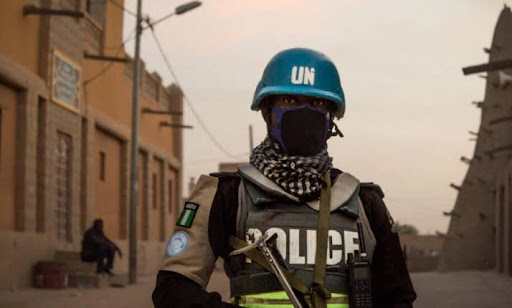UN Peacekeepers Set To Leave Mali Following Fallout With Authorities
El Ghassim Wane, the head of UN Peacekeepers in Mali, stated that it would be "nearly impossible" to sustain the mission without the approval of the host country.

The UN Peacekeepers in Mali are set to leave the country after Mali’s Foreign Minister, Abdoulaye Diop, issued a demand for their immediate withdrawal from the country while speaking to the UN Security Council on Friday, June 16.
Diop has accused the peacekeeping force of failing to effectively address the ongoing insurgency by extremist groups in Mali for more than a decade and alleged that the UN’s presence has only worsened the situation, leading to a breakdown of trust between the people of Mali and the peacekeeping force.
According to Diop’s statement on Friday, MINUSMA has seemingly contributed to the issue.
Tensions have arisen between Mali and the United Nations following the request of UN experts to investigate the actions of Wagner Group, a Russian private military contractor, and the alleged human rights abuses committed by government forces.
According to a statement released by UN experts, there are concerns regarding the alleged execution of hundreds of individuals in Moura, a village in central Mali, over the course of several days in late March 2022.
The Malian armed forces were reportedly accompanied by military personnel believed to be affiliated with the Wagner Group. The experts have deemed the reports to be credible.
In response to the allegations of human rights violations in Moura, Malian authorities have denied any wrongdoing. They have refuted claims that civilians were killed and have accused the investigation of being based on a “fictitious narrative.”
In May, a statement made by government spokesperson Colonel Abdoulaye Maiga reported that no civilians from Moura had lost their lives during the military operation.
The UN Peacekeeping Mission in Mali
The United Nations Multidimensional Integrated Stabilization Mission in Mali (MINUSMA) was established in 2013 with the aim of promoting a secure and prosperous future for the country, in pursuit of peace and stability.
The commencement of its operations in Mali coincided with a tumultuous period marked by a convoluted interplay of ethnic tensions, political instability, and the ascent of Jihadist groups, which collectively threw the nation into disarray.
The United Nations Security Council adopted Resolution 2100 paving the way for the establishment of MINUSMA to provide support for the stabilization of Mali, safeguard civilians, and encourage national dialogue and reconciliation.
The MINUSMA mission is made up of a diverse group of military, police, and civilian personnel from multiple contributing nations. They worked closely with Malian authorities and regional stakeholders to achieve their objectives until recently.
However, tensions have arisen between the mission and the ruling regime in recent times, particularly after the military’s seizure of power in a coup in 2020, which was followed by another coup nine months later.
In 2022, Malian authorities expelled Olivier Salgado, the spokesperson for MINUSMA and ordered the temporary suspension of the mission’s group rotations.
Earlier this year in February, Mali’s ruling military junta declared a senior official of the peacekeeping mission persona non grata, giving him 48 hours to leave the country.
According to the French AFP news agency, El Ghassim Wane, the head of MINUSMA, responded to Diop’s speech on Friday, stating that it would be “nearly impossible” to sustain the mission without the approval of the host country.
Support Our Journalism
There are millions of ordinary people affected by conflict in Africa whose stories are missing in the mainstream media. HumAngle is determined to tell those challenging and under-reported stories, hoping that the people impacted by these conflicts will find the safety and security they deserve.
To ensure that we continue to provide public service coverage, we have a small favour to ask you. We want you to be part of our journalistic endeavour by contributing a token to us.
Your donation will further promote a robust, free, and independent media.
Donate HereStay Closer To The Stories That Matter




